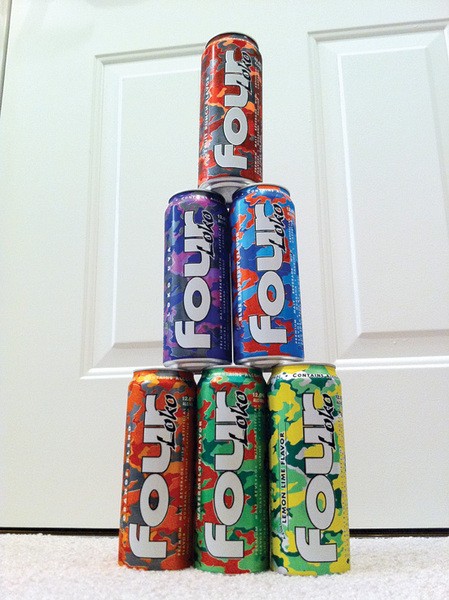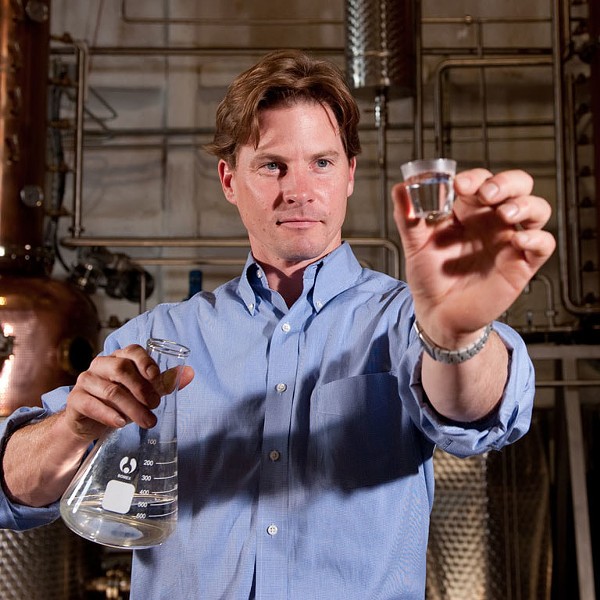Over the past three months, more than a dozen teenagers and adults were treated at Lancaster General Hospital in Pennsylvania after drinking Four Loko, a fruit-flavored beverage containing 12 percent alcohol and 135 milligrams of caffeine. Dr. Michael Reihart, an emergency room doctor at Lancaster General Hospital, said the drinks are dangerous because the caffeine obscures the effect of the alcohol, which keeps consumers from realizing how intoxicated they are. Oklahoma, Utah, Michigan, and Washington banned sales of Four Loko this fall. Facing a possible nationwide ban on alcoholic beverages spiked with caffeine by the Food and Drug Administration, the manufacturer of the beverage, Phusion Projects, announced that it would remove the caffeine from Four Loko.
Source: New York Times
Above the Arctic Circle in Russia, bears were seen digging up and eating corpses in municipal cemeteries. The incident took place on October 23 in the Northern Republic of Komi. The bears raided graveyards for food because of a shortage of their traditional meals such as mushrooms, berries, and frogs after a sweltering summer. Simion Razmislov, vice president of Komi’s hunting and fishing society, said the bears are very hungry this year and many of them will die.
Source: Guardian UK
The IRS denied a request from the American Academy of Pediatrics to reclassify breast-feeding costs as a medical care expense because its code considers nutrition a necessity rather than a medical condition. It also ruled that breast-feeding does not have enough health benefits to qualify as a form of medical care. According to a study released by Harvard Medical School, the US could save $13 billion a year in health care costs and prevent the premature deaths of 900 infants each year from respiratory illness and other infections if 90 percent of mothers followed the standard medical advice of feeding infants only breast milk for their first six months.
Source: New York Times
On October 26, Justice Department officials announced in Boston that GlaxoSmithKline, the British health care group, agreed to pay $750 million to settle criminal and civil complaints that they knowingly sold contaminated drugs. The $150 million payment to settle criminal charges was the largest payment by a manufacturer of adulterated drugs. The outcome also awards $600 million in civil penalties. Cheryl D. Eckard, the company’s quality manager, will receive a share of $96 million for her whistleblower suit, one of the highest such awards in a health care fraud case.
Source: New York Times
In Pennsylvania, Gov. Edward G. Rendell signed an executive order effectively banning natural gas development on state forest lands. Rendell said the moratorium was needed to protect unleased public lands from being disturbed and prevent unchecked industrialization. About 660,000 of the state’s 2.2 million acres of public forest land have been leased by drilling companies, according to the Department of Conservation and Natural Resources. The Marcellus Shale Coalition, an industry group, estimates that there are about 160 of their wells on state lands and about 2,300 wells on private lands in Pennsylvania. Environmental groups and opponents of hydraulic fracturing were in support of the moratorium because of suspicion that the techniques used by gas companies are contributing to contamination of local underground water. The federal Environmental Protection Agency is undertaking a scientific analysis of the contamination issue that is expected to be completed in 2012.
Source: New York Times
In 2009, donations to the nation’s biggest charities dropped 11 percent. The median amount raised by charities on the Chronicle of Philanthropy’s Philanthropy 400 list declined to $98.8 million, down from $105 million in 2008. The drop suffered in charitable contributions was nearly four times greater than the 2.8 percent decrease in 2001, when charities also struggled to raise money from donors in a recession. Among the 10 charities that raised the most last year, six reported declines, including Giving to United Way Worldwide, with a 4.5 percent drop and the Salvation Army, declining by 8.4 percent.
Source: Chronicle of Philanthropy
Drugmaker Genentech has begun offering secret rebates to eye doctors to get them to use more of the company’s expensive drug Lucentis rather than a less costly alternative. Lucentis is mainly used to treat age-related macular degeneration, which causes blindness in the elderly. It costs about $2,000 for each injection into the eye, with an injection needed as often as once a month. Avastin, another Genentech drug, costs only $20 to $50 for each injection. The program, which started on October 1, gives medical practices the opportunity to earn tens of thousands of dollars in rebates each quarter for using Lucentis. Genentech suggests that the Lucentis rebate program was started to encourage doctors to try the drug to treat retinal vein occlusion, which it was recently approved for.
Source: New York Times
In 20 years, chocolate may become rare and expensive like caviar, according to John Mason, executive director and founder of the Ghana-based Nature Conservation Research Council. Cocoa can only be grown in latitudes within 10 degrees of the equator and is primarily produced in West Africa. Farmers in the countries that produce the bulk of cocoa may abandon the crop as they receive minimal rewards for the time-consuming work. According to Tony Lass, chairman of the Cocoa Research Association, smallholders make up 95 percent of growers and earn just 80 cents a day.
Source: Independent UK
Alcohol is more dangerous than illegal drugs, according to a study paid for by Britain’s Center for Crime and Justice Studies. The study evaluated and ranked substances including alcohol, cocaine, heroin, Ecstasy, marijuana, and LSD based on how destructive they are to an individual and to society as a whole. Alcohol outranked all other substances, followed by heroin and crack cocaine. Researchers found that alcohol damages nearly all organ systems. They also said it is connected to higher death rates and is involved in a greater percentage of crime compared to most drugs.
Source: Washington Post

















